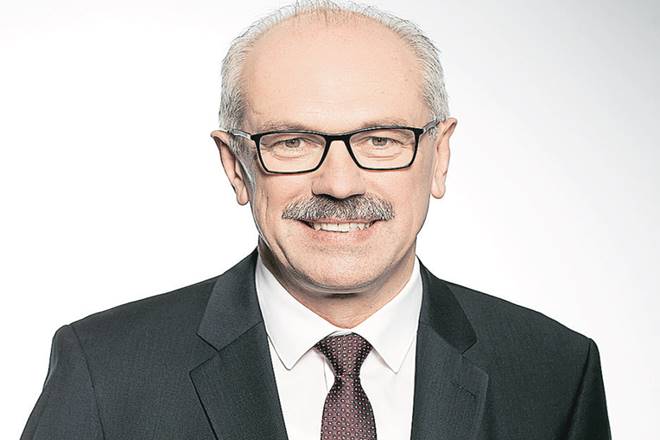Global industrial technology and auto-component supplier ZF had been preparing for the ongoing worldwide transition into electric vehicles since as early as 2012. The company plans to have 2,500 engineers in its new technology centre in Hyderabad by 2020. It also has a significant presence in the wind energy industry in the country. Wilhelm Rehm, member of management board, ZF Friedrichshafen, discussed his purview of the Indian market and other issues related to the industry with FE’s Anupam Chatterjee at the Hannover Messe industrial trade fair. Excerpts:
What are your plans for the Indian market?
ZF is a major automation supplier across all sectors, especially automotive and wind. I have travelled a lot to India in the last few years as I was also responsible for building the plant in Pune. In India, we have a strong portfolio on the wind power side, but we have business in other segments such as the auto sector as well. We have already opened a technology centre in India in Hyderabad last year, where will build up an engineering centre that will have 2,500 engineers by 2020. India for us is a huge opportunity for the future. This shows how important India is as a future market for us. At our Pune plant, we are producing various transmission systems and other components.
How is the Indian market for wind equipment distinct from other markets?
India is a huge market that is growing fast, but the nature of the market is different from other countries. There is a demand for products oriented on technology, but I would also say that the working environment there plays a solid ground for furthering future collaborations. The country is very much driven by innovation, but low costs also play a major role. The demand is more for low-tech product compared with their high-tech counterparts. We at ZF are learning to develop low-cost products to cater to the demands and needs of the Indian market. Increase in investments in India would be driven by the number of orders we receive, in all areas.
How are equipment suppliers coping up with the changes in the wind energy sector in the country?
Our Coimbatore plant, with about 600 employees, has been supplying technology and component to the wind industry. Six-seven months back there was a lull in orders after prices fell following the introduction of the competitive bidding regime in renewable energy. But the orders are coming back as the country is moving towards attaining the target of 175 GW by 2022. For suppliers, the economic situation is not at its best because on the customers’ side the tariffs are falling, while on the other hand, raw material, that is, steel prices, are rising. We have to find a way out of this situation. I am not a friend of government policies because at the end of the day it is the market which has to decide its competitiveness on their own.
What do you think about the trend of transition towards electric vehicles?
Two years ago, we had built a separate e-mobility division, dedicated to the development of technologies for electric vehicles. Every company must go through such disruptive phases with changes in technology. We had been prepared for this from as early as 2012, when we had charted our strategy for 2025. Everything that is happening had been taken into consideration back then. Today we are serving both conventional car technologies as well as hybrid and electric technology.
(Travel for this Q&A was sponsored by ZF Friedrichshafen AG)

